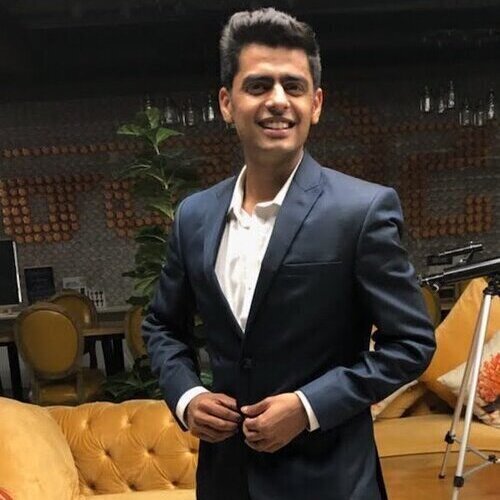Tell us a little bit about your background...
I come from a regular Indian family. I was born and raised in Delhi, which taught me the lessons of life. While I did my high school from a science background, I took the path of journalism during my graduation. In my third year, I started working part-time as an Assistant Copy Editor at a news start-up called NewsMobile alongside attending college. Within an year after graduating, the same organisation appointed me as the News Editor and I continued my professional journey with the same organisation until September 2020 before I arrived at the University of Strathclyde. In my five-years at NewsMobile, I learnt a lot and managed to take a closer look at the happenings not only in India but around the world.
What inspired you to study your subject?
In my journalistic career I came closer to the challenges and crisis in Journalism being faced in India. Media, which is considered as the fourth pillar of Indian Democracy seems to be crumbling lately due to biased and unethical practices. In a bid to strong arm Indian media, I decided to enhance and engrave journalism practices from the University of Strathclyde.
Why did you choose to continue studying for your Masters at the University of Strathclyde?
The course curriculum was my first attraction which drew me closer to University of Strathclyde for my master’s degree. Further, upon on my research, the string of diverse lecturers which had already served in global media acted like a deciding factor. Because I can take help from the professional experiences of the people who had already been in the field for years.
What has been the highlight of your time at Strathclyde so far?
My experience so far at the University of Strathclyde has been beyond satisfactory in the challenging circumstances due to COVID-19. Despite so many restrictions, the university left no page unturned when it comes to providing an efficient learning experience along with inviting a range of guest lecturers. This certainly has been the highlight for me.
How have you found studying online, in the current situation?
The online studying has been a challenge for students as well as the University. However, I’d like to show my appreciation for the efforts shown by the University of Strathclyde in providing in-depth knowledge and constantly being available to students as a support system in curriculum as well as mental health in these difficult times.
What specialist knowledge and professional skills have you developed whilst studying the course?
So far by the end of the first semester, I have managed to develop my skills in researching. And the online learning ecosystem enabled me to get the job done without actually going out.
What would be your advice for people considering taking this course?
My advice for people taking up Digital Journalism would be to read, write, record, repeat. I believe these are the components of any Digital Journalist and practicing them constantly will enhance your skills.
What have been the main challenges studying at postgraduate level?
Since online education is very new to me, I’d say that has been the major challenge for me so far but at the same time we are learning to conquer the challenges.
How has your scholarship supported your studies?
The scholarship definitely helped me a lot and it gave me further motivation to do well.
What are your ambitions for the future?
Following the completion of the course, I’d love to contribute to digital journalism ideally by working in any digital media outlet, either a well established one or one in its developing stage, because I like challenges and it’d give me great pleasure if I’m able to make a difference. At the same time, I’m keen to work on a project to curb the menace of fake news and in the near future I would like to work alongside University of Strathclyde to do the same.
